Few people use generative AI daily despite ChatGPT hype, study finds

A new study by the Reuters Institute for the Study of Journalism and the University of Oxford reveals that, despite the hype, only a few users regularly use ChatGPT. The study focuses in particular on the perceived use of generative AI in journalism.
The YouGov online survey, conducted in six countries (Argentina, Denmark, France, Japan, UK and USA) in April and March 2024 with approximately 2,000 participants each, shows that between 22% (Japan) and 35% (Denmark) use ChatGPT at least occasionally.
In terms of brand awareness, ChatGPT clearly leads in all countries, with Google Gemini and Microsoft Copilot trailing behind. Claude and Grok are far behind.
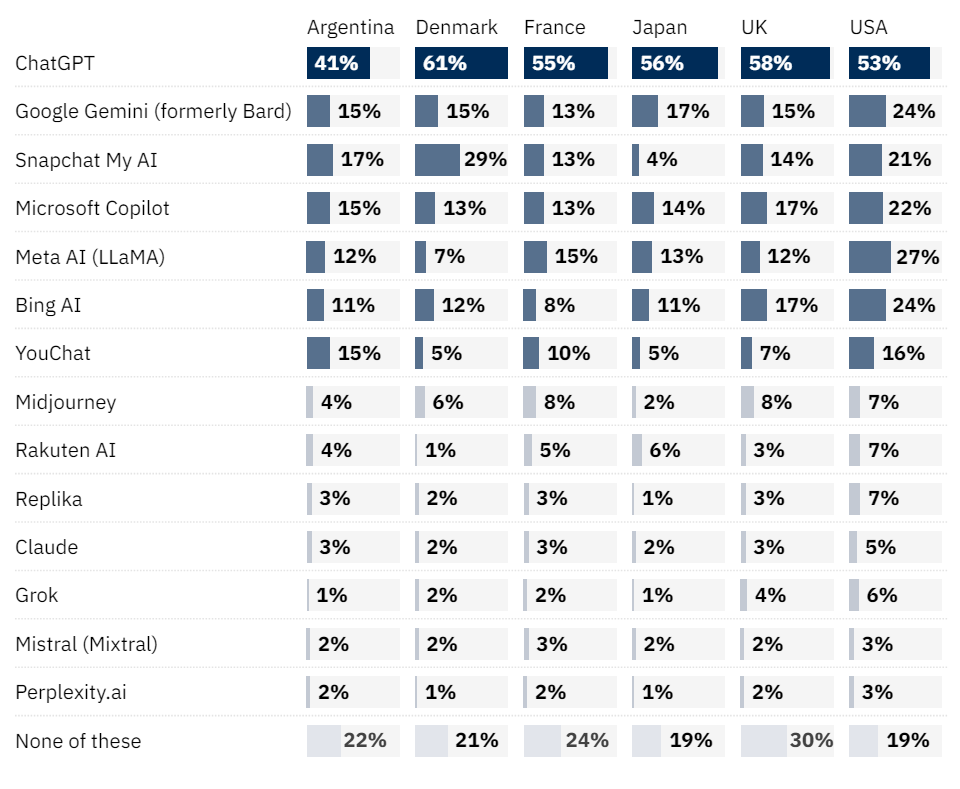
However, daily use is rare, with only 1% in Japan, 2% in France and the UK, and 7% in the USA, where usage is most widespread. In almost all countries, private use slightly outweighs professional use.
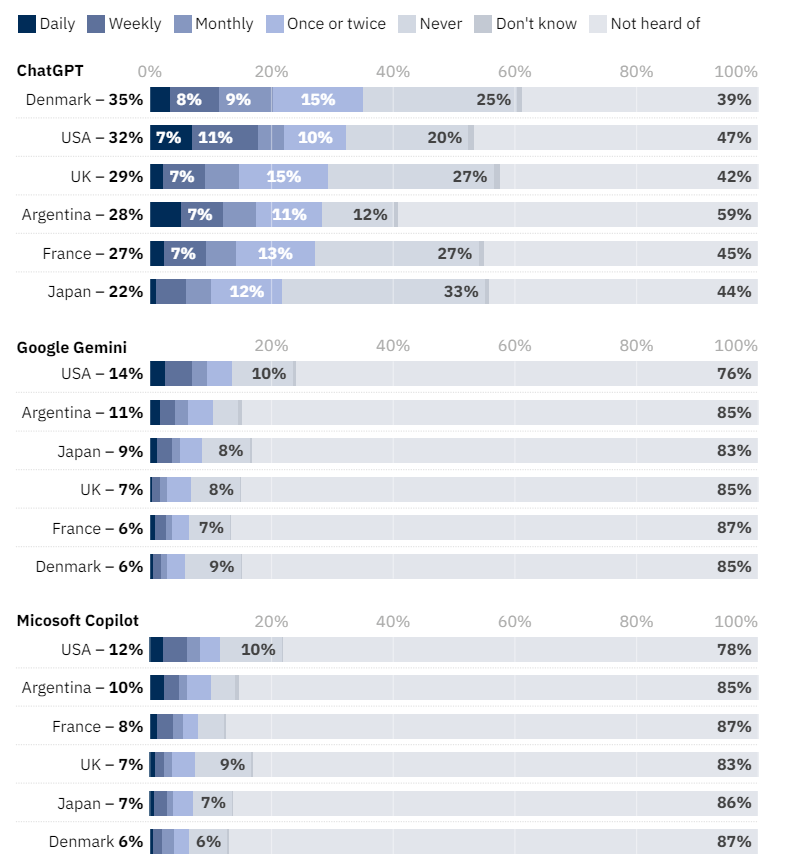
Younger people use generative AI tools much more often. On average, across all six countries, 56% of 18 to 24-year-olds have tried ChatGPT at least once, compared to only 16% of those over 55. However, occasional use also prevails among younger people.
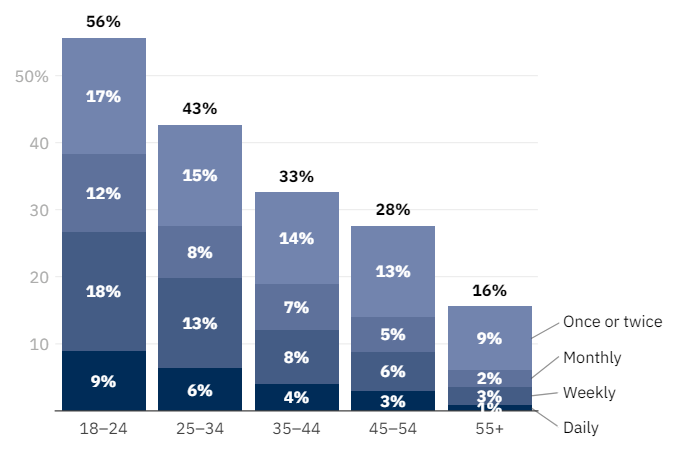
About a quarter (24%) of respondents say they have used generative AI to obtain information. A similar proportion (28%) have used it to create different types of media, such as text, audio, code, images, and video. Only 5% have tried to get news through chatbots.
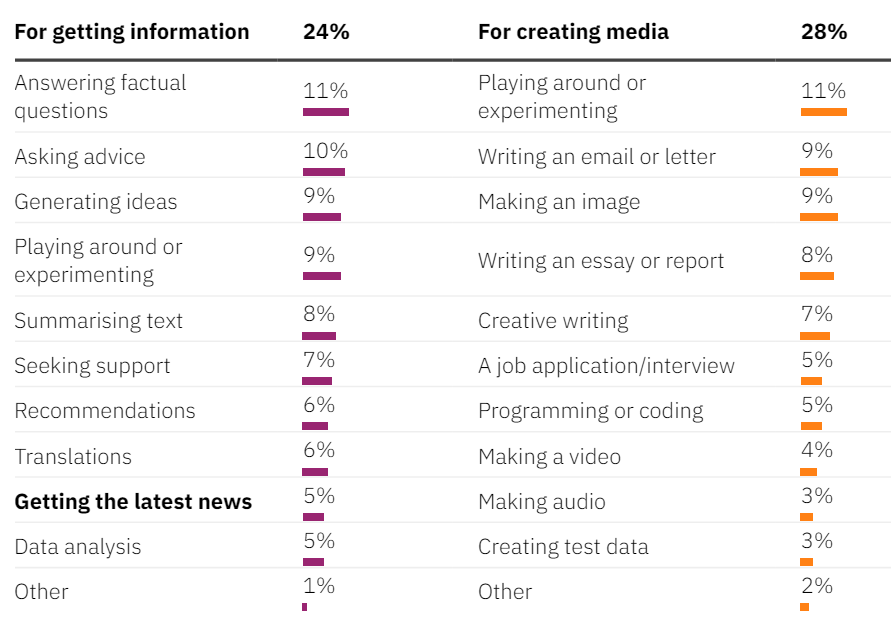
What people think about using AI in journalism
A significant portion of the population believes that journalists already frequently use AI for various tasks, mostly in the background. 43% believe AI is always or often used to fix spelling and grammar, and 40% think it's used for data analysis.
However, a considerable proportion also believes AI is already routinely used for high-profile tasks like writing headlines (29%) or article text (27%). Yet, only 32% think human editors always or often check AI results before publishing.
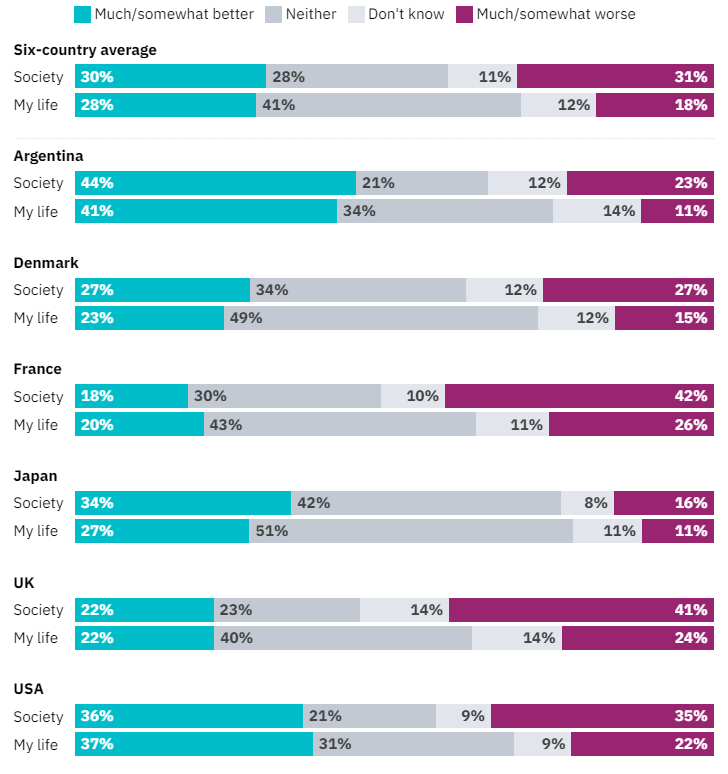
Most respondents are more comfortable with news created entirely or mostly by human journalists than with AI-generated content. If at all, AI should be used for "soft" topics such as fashion and sport rather than "hard" news from politics and world affairs.
A large majority would like to see a label if content was predominantly created by AI, at least in certain cases. However, there is little agreement on what exactly should be labeled.
Only eight percent believe that AI-generated news is more valuable than content created by humans. 41 percent consider it less valuable. However, many people are willing to pay about the same price for AI-generated news as for purely human-generated content.
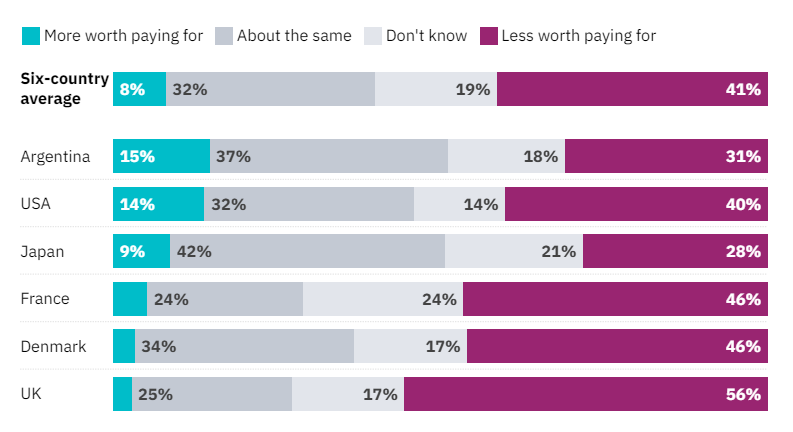
Overall, the study shows a nuanced picture: Generative AI has reached the awareness of many people but not yet their daily lives. When it comes to its use in journalism, skepticism prevails, especially for audience-facing tasks.
The study authors conclude that the public has not yet formed a clear opinion on generative AI.
They note that this is still a young technology, and it remains to be seen how its use and public perception will evolve, especially in journalism and news.
The survey results show that between a quarter and half of respondents chose neutral answers or said "don't know" to many questions about assessing AI in various sectors and applications. This suggests significant uncertainty about what role generative AI should and will play in different sectors.
Given that many people have only limited personal experience using such products, the authors say it's understandable that most of the public has not yet formed a conclusive opinion.
AI News Without the Hype – Curated by Humans
As a THE DECODER subscriber, you get ad-free reading, our weekly AI newsletter, the exclusive "AI Radar" Frontier Report 6× per year, access to comments, and our complete archive.
Subscribe nowAI news without the hype
Curated by humans.
- Over 20 percent launch discount.
- Read without distractions – no Google ads.
- Access to comments and community discussions.
- Weekly AI newsletter.
- 6 times a year: “AI Radar” – deep dives on key AI topics.
- Up to 25 % off on KI Pro online events.
- Access to our full ten-year archive.
- Get the latest AI news from The Decoder.